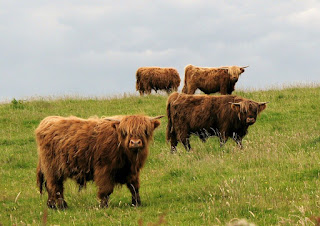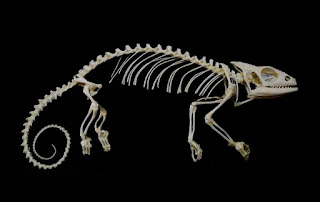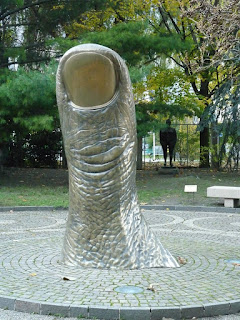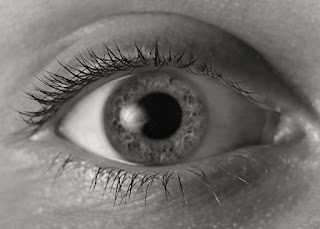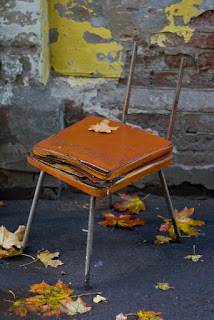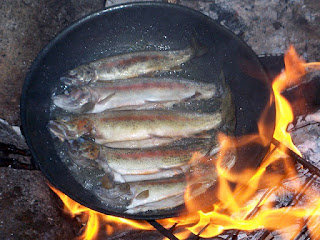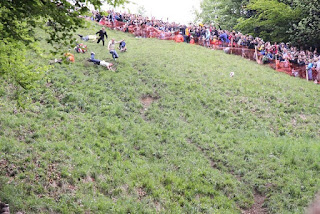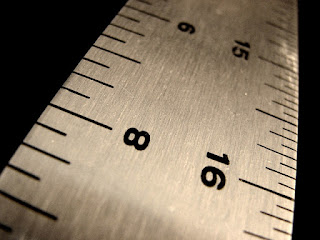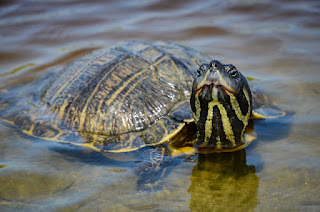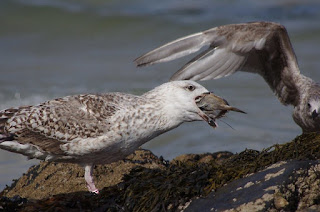We might describe someone as a “stuffed shirt” if they are excessively formal, pompous or old-fashioned.
Examples:
“Instead, Isabel reluctantly marries a stuffed shirt named Wilbur Minafer.”
“This is the film that made Marlene Dietrich an international star, prancing around in ruffled knickers and bewitching stuffed-shirt professor Emil Jannings.”
“Did Elizabeth Bennet move into Pemberley and discover that her prejudice and her pride were well founded when Mr. Darcy turned out to be a stuffed shirt with anger-management issues?”
The phrase apparently originated around 1900 [1] and refers to a dummy in a dress shirt in a menswear store, which appears pompous and is also hollow [2].
Photo credit: Hemeroteca Digital | Old magazines & newspapers | Portugal’s photostream (Creative Commons)
[1] “stuffed shirt” in The American Heritage Dictionary of Idioms, by Christine Ammer. 2nd ed. Houghton Mifflin, 2013.
[2] “stuff” in Brewer’s Dictionary of Phrase and Fable, edited by Susie Dent. 19th ed. Chambers Harrap, 2012.
I blog about editing, proofreading, and the English language.
Comments and suggestions are welcome.
Many of the phrasal verbs and idioms addressed in this blog were highlighted during an English conversation class I ran a few years ago. I’m grateful to those who attended this for helping me see my native language from a different perspective.
Most of the examples used are quotes from news articles. Click on the links (in yellow) to view the full article.
Friday, 27 December 2019
Saturday, 30 November 2019
TWO IDIOMS FOR DESCRIBING REMOTE PLACES
Places that are remote (a long way from towns or cities) are sometimes described as the “back of beyond” or “the middle of nowhere.”
Examples:
“It felt as though we were heading to the back of beyond instead of a picturesque village just a few miles from York.”
“Growing up in the back of beyond in Scotland, I have fond memories of eating gooseberries.”
“It’s been four hours since the train stopped in the middle of nowhere, somewhere between Preston and Lancaster.”
“They may have an image of being slightly dour, a bit weather-beaten, stuck in the middle of nowhere and with nothing much to do other than cut peat and count sheep.”
Apparently, “back of beyond” was first used by Sir Walter Scott in 1816 [1].
I was reminded of “back of beyond” while reading Chris Riddell’s graphic novel, Goth Girl and the Ghost of a Mouse - a delightful story with beautiful illustrations - highly recommended.
Photo credit: Michael E. (Creative Commons)
[1] Cresswell, Julia. “back” In The Oxford Dictionary of Word Origins. Oxford University Press, 2009.
Examples:
“It felt as though we were heading to the back of beyond instead of a picturesque village just a few miles from York.”
“Growing up in the back of beyond in Scotland, I have fond memories of eating gooseberries.”
“It’s been four hours since the train stopped in the middle of nowhere, somewhere between Preston and Lancaster.”
“They may have an image of being slightly dour, a bit weather-beaten, stuck in the middle of nowhere and with nothing much to do other than cut peat and count sheep.”
Apparently, “back of beyond” was first used by Sir Walter Scott in 1816 [1].
I was reminded of “back of beyond” while reading Chris Riddell’s graphic novel, Goth Girl and the Ghost of a Mouse - a delightful story with beautiful illustrations - highly recommended.
Photo credit: Michael E. (Creative Commons)
[1] Cresswell, Julia. “back” In The Oxford Dictionary of Word Origins. Oxford University Press, 2009.
Saturday, 23 November 2019
UNTIL THE COWS COME HOME
The phrase “until (or till) the cows come home” means “for a very long time.”
Examples
“They are happy to run until the cows come home and they are not ones to shy away from the colder temperatures.”
“He said that one can play music until the cows come home, but without visibility, one doesn't get focus from the audience.”
“Whether a college education is essential or not is perhaps something that can be debated till the cows come home.
This phrase apparently dates from the 16th Century [1], when dairy cows were not milked daily but would remain in a pasture for a prolonged time [2]. It is often used to emphasise the futility of doing something for a long time, as in the second and third examples.
Photo credit: ufopilot (Creative Commons)
[1] Cresswell, Julia. “Cow” in The Oxford Dictionary of Word Origins. Oxford University Press, 2009.
[2] “Till” in Brewer's Dictionary of Phrase and Fable, edited by Susie Dent. 19th ed. Chambers Harrap, 2012.
Examples
“They are happy to run until the cows come home and they are not ones to shy away from the colder temperatures.”
“He said that one can play music until the cows come home, but without visibility, one doesn't get focus from the audience.”
“Whether a college education is essential or not is perhaps something that can be debated till the cows come home.
This phrase apparently dates from the 16th Century [1], when dairy cows were not milked daily but would remain in a pasture for a prolonged time [2]. It is often used to emphasise the futility of doing something for a long time, as in the second and third examples.
Photo credit: ufopilot (Creative Commons)
[1] Cresswell, Julia. “Cow” in The Oxford Dictionary of Word Origins. Oxford University Press, 2009.
[2] “Till” in Brewer's Dictionary of Phrase and Fable, edited by Susie Dent. 19th ed. Chambers Harrap, 2012.
Wednesday, 30 October 2019
SKELETON IN THE CUPBOARD
A skeleton in the cupboard is an embarrassing fact that someone wants to keep secret.
Examples:
“Now, almost like a skeleton in the cupboard, workmen are bringing to light a reminder of the tram days.”
“We all have a skeleton in the cupboard. In my case, it was publicised to the world and that wasn’t really fair, I don’t think.”
The US version of this idiom is “a skeleton in the closet.”
e.g. “Countless films and TV shows present a group of friends or family who are rattled by the airing of a long-held grievance, or the sudden announcement of a skeleton in the closet.”
An origin for this idiom is offered in Brewer’s Dictionary of Phrase and Fable [1], which tells the story of a search for someone who had no problems. Eventually a lady was found who seemed to fulfil this criterion; however, she then took her interviewers upstairs and opened a cupboard containing a human skeleton, which was that of her husband’s rival, killed in a duel. She explained that every night, her husband made her kiss this skeleton.
Photo credit: Jean-Christophe THEIL (Creative Commons)
[1] “Skeleton” In Brewer’s Dictionary of Phrase and Fable, edited by Susie Dent. 19th ed. Chambers Harrap, 2012.
Examples:
“Now, almost like a skeleton in the cupboard, workmen are bringing to light a reminder of the tram days.”
“We all have a skeleton in the cupboard. In my case, it was publicised to the world and that wasn’t really fair, I don’t think.”
The US version of this idiom is “a skeleton in the closet.”
e.g. “Countless films and TV shows present a group of friends or family who are rattled by the airing of a long-held grievance, or the sudden announcement of a skeleton in the closet.”
An origin for this idiom is offered in Brewer’s Dictionary of Phrase and Fable [1], which tells the story of a search for someone who had no problems. Eventually a lady was found who seemed to fulfil this criterion; however, she then took her interviewers upstairs and opened a cupboard containing a human skeleton, which was that of her husband’s rival, killed in a duel. She explained that every night, her husband made her kiss this skeleton.
Photo credit: Jean-Christophe THEIL (Creative Commons)
[1] “Skeleton” In Brewer’s Dictionary of Phrase and Fable, edited by Susie Dent. 19th ed. Chambers Harrap, 2012.
Tuesday, 29 October 2019
QUID PRO QUO
The phrase “quid pro quo” is a Latin term that translates literally as “something for something.” It is used to describe a favour or advantage given in return for something. It is used as both a noun and an adjective.
Examples:
“First, a professor might theoretically ask a student-athlete to lose a game on purpose as part of a quid pro quo.”
“This also applies to a quid pro quo situation in which an individual uses the power of their position within an organization to benefit them personally.”
“A swipe of the Clubcard entitled customers to special offers and discounts. But there was a quid-pro-quo: the supermarket learned exactly what its customers were up to.”
Photo credit: Mathew Sanders (Creative Commons)
Examples:
“First, a professor might theoretically ask a student-athlete to lose a game on purpose as part of a quid pro quo.”
“This also applies to a quid pro quo situation in which an individual uses the power of their position within an organization to benefit them personally.”
“A swipe of the Clubcard entitled customers to special offers and discounts. But there was a quid-pro-quo: the supermarket learned exactly what its customers were up to.”
Photo credit: Mathew Sanders (Creative Commons)
Monday, 28 October 2019
WHAT IS A GROCERS’ APOSTROPHE?
A grocers’ apostrophe is an apostrophe that is misapplied to a plural. This error is frequently seen in grocers’ shops, hence the name; however, to be fair, it is seen in many other places.
Examples:
“First thing’s first: nobody does a collaboration quite like ASOS.”
“In the video, the singer can be seen holding a bunch of banana’s.”
“We have to get the window’s boarded up”
(All these apostrophes are used incorrectly - apostrophes should not be used for plurals.)
Photo credit: Miria Grunick (Creative Commons)
Examples:
“First thing’s first: nobody does a collaboration quite like ASOS.”
“In the video, the singer can be seen holding a bunch of banana’s.”
“We have to get the window’s boarded up”
(All these apostrophes are used incorrectly - apostrophes should not be used for plurals.)
Photo credit: Miria Grunick (Creative Commons)
Tuesday, 8 October 2019
RULE OF THUMB
A rule of thumb is a rule or principle based on experience rather than theory or precise calculations.
Examples:
“As a rule of thumb, give your plants a little water every other day.”
“A depreciation of 10% or more in the value of the pound is likely—which, according to a rule of thumb, would increase prices by 2–3%.”
“As a rule of thumb, thicker fabrics last longer than thinner ones.”
This idiom was first recorded in 1692 and probably originates from the use of parts of the body as units of measurement. As the first joint of an adult’s thumb is about an inch long, it could be used to make rough measurements [1].
Photo credit: Romain Guilloux (Creative Commons)
[1] Cresswell, Julia. “rule” in The Oxford Dictionary of Word Origins. Oxford University Press, 2009.
Examples:
“As a rule of thumb, give your plants a little water every other day.”
“A depreciation of 10% or more in the value of the pound is likely—which, according to a rule of thumb, would increase prices by 2–3%.”
“As a rule of thumb, thicker fabrics last longer than thinner ones.”
This idiom was first recorded in 1692 and probably originates from the use of parts of the body as units of measurement. As the first joint of an adult’s thumb is about an inch long, it could be used to make rough measurements [1].
Photo credit: Romain Guilloux (Creative Commons)
[1] Cresswell, Julia. “rule” in The Oxford Dictionary of Word Origins. Oxford University Press, 2009.
Monday, 7 October 2019
HOW TO USE “ALREADY”
As an adverb, “already” is used in to show that:
(1) something is currently happening;
(2) something was finished before something else happened;
(3) something was completed earlier than expected.
Examples:
(1)
“We already work a 32-hour week on average (pretty much a four-day week); it’s just that it’s predominantly women who work part-time.”
When using the simple present tense, as above, “already” is normally placed before the verb.
This article discusses the possibility of a shorter working week; “already” is used here to indicate that, on average, people do work a shorter working work than the 40 hours that is classed as full-time work. In other words, the shorter working week in question is currently happening.
“Upland farming is already delivering a plethora of ‘public goods’ but the expertise to manage the land will be lost without long-term public funding, a new report warns.”
Here, the present continuous tense is used, and “already” is placed between the present tense of the verb “to be” and the -ing form of the verb.
(2)
“I had already packed the girls’ bags and bought their school uniforms.”
Here, the past perfect tense is used; “already” is placed between “had” and the past tense of the verb “to pack.”
“The members had already voted unanimously to declare a ‘climate emergency’.”
(3)
“A man in his 20s is already working on his Christmas light display - in October.”
“Tesco is closing its Jack’s Supermarkets already”
Here, “already” is placed at the end of the sentence. It would also be correct to place it before “closing.”
Photo credit: Steven Feather (Creative Commons)
(1) something is currently happening;
(2) something was finished before something else happened;
(3) something was completed earlier than expected.
Examples:
(1)
“We already work a 32-hour week on average (pretty much a four-day week); it’s just that it’s predominantly women who work part-time.”
When using the simple present tense, as above, “already” is normally placed before the verb.
This article discusses the possibility of a shorter working week; “already” is used here to indicate that, on average, people do work a shorter working work than the 40 hours that is classed as full-time work. In other words, the shorter working week in question is currently happening.
“Upland farming is already delivering a plethora of ‘public goods’ but the expertise to manage the land will be lost without long-term public funding, a new report warns.”
Here, the present continuous tense is used, and “already” is placed between the present tense of the verb “to be” and the -ing form of the verb.
(2)
“I had already packed the girls’ bags and bought their school uniforms.”
Here, the past perfect tense is used; “already” is placed between “had” and the past tense of the verb “to pack.”
“The members had already voted unanimously to declare a ‘climate emergency’.”
(3)
“A man in his 20s is already working on his Christmas light display - in October.”
“Tesco is closing its Jack’s Supermarkets already”
Here, “already” is placed at the end of the sentence. It would also be correct to place it before “closing.”
Photo credit: Steven Feather (Creative Commons)
Sunday, 22 September 2019
HOMONYMS – SORE AND SOAR
Words that are homonyms have the same spelling or pronunciation but different meanings.
SORE and SOAR are homonyms with different spellings but the same pronunciation.
The word SORE functions as both an adjective and a noun.
As an adjective, it can be used to indicate that a part of, or all of, one’s body is painful.
e.g. “Do your eyes ever feel red and sore after swimming in an indoor pool?”
It can also mean upset or angry.
e.g. “Kezia Dugdale says she is ‘sore’ over estrangement from her Moray-based father”
Sore can also mean urgent.
e.g. “Leaded windows, like all other structures have a finite lifetime, and these have served well, but are now in sore need of refurbishment.”
A SORE (noun) is a painful/damaged area of the body.
e.g. “The first sign is often a sore on the skin, usually under their elbow or knee.”
It is also a cause of distress.
e.g. “Brexit reopened those old sores, demanding that people decide whether they were European or British.”
Whether it is used as an adjective or a noun, the word SORE is always a negative term; it is used to describe physical or emotional pain, or to refer to something that needs to be fixed.
The word SOAR functions only as a verb, and it always refers to flying or rising high (literally or figuratively).
One meaning of SOAR is to fly into or remain in the air.
e.g. “For anyone who enjoys wildlife, there can be few sights more uplifting than seeing a golden eagle soaring over a high ridge, or watching a hen harrier quartering a moor, searching for prey.”
SOAR is also used to describe a rapid increase in something.
e.g. “Cauliflower prices have soared and some farmers have suffered financial losses after the destruction of their crops.”
Photo credit: Steve @ Aberdeen (Creative Commons)
SORE and SOAR are homonyms with different spellings but the same pronunciation.
The word SORE functions as both an adjective and a noun.
As an adjective, it can be used to indicate that a part of, or all of, one’s body is painful.
e.g. “Do your eyes ever feel red and sore after swimming in an indoor pool?”
It can also mean upset or angry.
e.g. “Kezia Dugdale says she is ‘sore’ over estrangement from her Moray-based father”
Sore can also mean urgent.
e.g. “Leaded windows, like all other structures have a finite lifetime, and these have served well, but are now in sore need of refurbishment.”
A SORE (noun) is a painful/damaged area of the body.
e.g. “The first sign is often a sore on the skin, usually under their elbow or knee.”
It is also a cause of distress.
e.g. “Brexit reopened those old sores, demanding that people decide whether they were European or British.”
Whether it is used as an adjective or a noun, the word SORE is always a negative term; it is used to describe physical or emotional pain, or to refer to something that needs to be fixed.
The word SOAR functions only as a verb, and it always refers to flying or rising high (literally or figuratively).
One meaning of SOAR is to fly into or remain in the air.
e.g. “For anyone who enjoys wildlife, there can be few sights more uplifting than seeing a golden eagle soaring over a high ridge, or watching a hen harrier quartering a moor, searching for prey.”
SOAR is also used to describe a rapid increase in something.
e.g. “Cauliflower prices have soared and some farmers have suffered financial losses after the destruction of their crops.”
Photo credit: Steve @ Aberdeen (Creative Commons)
Thursday, 19 September 2019
THINGS, DOODAHS AND BITS AND BOBS
Sometimes, we don’t know, or can’t remember, the specific name for something, or there are too many things to list. The English language has several words and phrases that are useful in this situation.
THING – the most commonly used “substitute word”
e.g. “Okra is the most foul thing ever grown.”
DOODAH – another word for something that cannot be named precisely
e.g. “There is just something so precious about a doodah that purifies your personal space, leaving your neighbour in the mire.”
ARTICLE – this word has several meanings, but it is also used to describe things that are unnamed.
e.g. “The Repair Fair resulted in the repair of over 120 items, while the Free & For Sale Frenzy saved over 1,200 articles of clothing from the landfill.”
ITEM – another word with several meanings, one of which is something that is unnamed
e.g. “If the crooks fail to intercept the delivery in the street, they often pose as a courier and try to collect the ‘wrongly delivered’ item from your house.”
STUFF – used to describe material things or activities
e.g. “I have a lot of stuff. It looks like I’m a hoarder, but I’m not.”
Photo credit: KotomiCreations (Creative Commons)
THING – the most commonly used “substitute word”
DOODAH – another word for something that cannot be named precisely
e.g. “There is just something so precious about a doodah that purifies your personal space, leaving your neighbour in the mire.”
ARTICLE – this word has several meanings, but it is also used to describe things that are unnamed.
e.g. “The Repair Fair resulted in the repair of over 120 items, while the Free & For Sale Frenzy saved over 1,200 articles of clothing from the landfill.”
ITEM – another word with several meanings, one of which is something that is unnamed
e.g. “If the crooks fail to intercept the delivery in the street, they often pose as a courier and try to collect the ‘wrongly delivered’ item from your house.”
STUFF – used to describe material things or activities
e.g. “I have a lot of stuff. It looks like I’m a hoarder, but I’m not.”
Photo credit: KotomiCreations (Creative Commons)
Sunday, 15 September 2019
PUT/SET THE CAT AMONG THE PIGEONS
To put/set the cat among the pigeons is to cause trouble by saying or doing something.
Examples:
“What has really set the cat among the pigeons with many residents, though, is the planned extension to the trams.”
“London mayor Sadiq Khan put the cat among the pigeons last week when he called on ministers to allow him to impose rent caps in the capital.”
“His will, however, set the cat among the pigeons.”
This idiom dates back to the early 18th century [1].
Photo credit: Ingrid Taylar (Creative Commons)
[1] Knowles, Elizabeth. “cat” in The Oxford Dictionary of Phrase and Fable. Oxford University Press, 2005.
Examples:
“What has really set the cat among the pigeons with many residents, though, is the planned extension to the trams.”
“London mayor Sadiq Khan put the cat among the pigeons last week when he called on ministers to allow him to impose rent caps in the capital.”
“His will, however, set the cat among the pigeons.”
This idiom dates back to the early 18th century [1].
Photo credit: Ingrid Taylar (Creative Commons)
[1] Knowles, Elizabeth. “cat” in The Oxford Dictionary of Phrase and Fable. Oxford University Press, 2005.
Saturday, 14 September 2019
THE NAKED EYE
Something that can be seen with the naked eye can be seen without a microscope, telescope or other device. (Although most of us have two eyes, we use “eye” in its singular form in this phrase. We would not say “the naked eyes.”)
Examples:
“ALMA is able to observe light that is invisible to the naked eye, allowing astronomers to view what is known as the ‘cold universe’ - those parts of space not visible using optical telescopes.”
“Discovered in 1995 by amateur astronomers Alan Hale in New Mexico and Thomas Bopp in Arizona, the extremely bright comet became visible to the naked eye the following year.”
“Antonie van Leeuwenhoek opened up a whole new world to us; he was the first to observe bacteria and other microscopic lifeforms which could not be seen by the naked eye.”
Photo credit: Manfred Huszar (Creative Commons)
Examples:
“ALMA is able to observe light that is invisible to the naked eye, allowing astronomers to view what is known as the ‘cold universe’ - those parts of space not visible using optical telescopes.”
“Discovered in 1995 by amateur astronomers Alan Hale in New Mexico and Thomas Bopp in Arizona, the extremely bright comet became visible to the naked eye the following year.”
“Antonie van Leeuwenhoek opened up a whole new world to us; he was the first to observe bacteria and other microscopic lifeforms which could not be seen by the naked eye.”
Photo credit: Manfred Huszar (Creative Commons)
Thursday, 1 August 2019
PLAYING UP AND PLAYING DOWN
To “play up” means to behave badly (misbehave).
e.g. “The kids are playing up downstairs.” (Our House, Madness)
We also say that something is playing up if it is not working properly.
e.g. “I thought it was my phone playing up, because I can receive calls but can’t make them.”
To “play up” something also means to make it appear important by emphasising it.
e.g. “London-born actor Tom Holland plays up the awkwardness of a hormone-addled Peter Parker, who is torn between saving the world and following his heart.”
To “play something down” means to make it seem less important than it is.
e.g. “Manchester United have played down their reported interest in Southampton’s 25-year-old Gabon midfielder Mario Lemina, who has been linked with Arsenal.”
Photo credit: Stacey MacNaught (Creative Commons)
e.g. “The kids are playing up downstairs.” (Our House, Madness)
We also say that something is playing up if it is not working properly.
e.g. “I thought it was my phone playing up, because I can receive calls but can’t make them.”
To “play up” something also means to make it appear important by emphasising it.
e.g. “London-born actor Tom Holland plays up the awkwardness of a hormone-addled Peter Parker, who is torn between saving the world and following his heart.”
To “play something down” means to make it seem less important than it is.
e.g. “Manchester United have played down their reported interest in Southampton’s 25-year-old Gabon midfielder Mario Lemina, who has been linked with Arsenal.”
Photo credit: Stacey MacNaught (Creative Commons)
Saturday, 29 June 2019
ROADWORKS – ALWAYS PLURAL
In Edinburgh, where I live, it’s almost impossible to drive anywhere without encountering roadworks (where roads are being repaired).
Strangely, even if we only find one place where the road has been dug up, we would not normally talk about “a roadwork.” We would always refer to this as “roadworks” with an “s.”
Examples:
“There were delays on a busy stretch of the M6 motorway in Staffordshire after it remained shut due to overrunning roadworks this morning (Friday June 28).”
“To add to the fun this week we also learned the junction at Hyde Gardens and Cornfield Road will be closed for roadworks for more than a month.”
“Six days of roadworks are due to begin on the A1 on Tuesday, with lanes being closed overnight for a maintenance scheme.”
Photo credit: Wendy (Creative Commons)
Strangely, even if we only find one place where the road has been dug up, we would not normally talk about “a roadwork.” We would always refer to this as “roadworks” with an “s.”
Examples:
“There were delays on a busy stretch of the M6 motorway in Staffordshire after it remained shut due to overrunning roadworks this morning (Friday June 28).”
“To add to the fun this week we also learned the junction at Hyde Gardens and Cornfield Road will be closed for roadworks for more than a month.”
“Six days of roadworks are due to begin on the A1 on Tuesday, with lanes being closed overnight for a maintenance scheme.”
Photo credit: Wendy (Creative Commons)
Thursday, 13 June 2019
NEITHER USE NOR ORNAMENT
I saw this phrase last week on a cloth cat displayed in a cafe at the Scottish National Gallery of Modern Art.
Something that is neither beautiful nor useful might be described as “neither use nor ornament.”
Examples:
“There was a small electric heater in the corner, but it seemed to be of neither use nor ornament, and my friend also commented on the slight chill in the air.”
“Jenna Coleman plays Joanna, a mum struggling with a new baby, and fiance – Alastair – who was neither use nor ornament when looking after a child.”
“I realise that, but there’s art, then there’s that stupid thing that was neither use nor ornament.”
Photo credit: Alexander Lyubavin (Creative Commons)
Something that is neither beautiful nor useful might be described as “neither use nor ornament.”
Examples:
“There was a small electric heater in the corner, but it seemed to be of neither use nor ornament, and my friend also commented on the slight chill in the air.”
“Jenna Coleman plays Joanna, a mum struggling with a new baby, and fiance – Alastair – who was neither use nor ornament when looking after a child.”
“I realise that, but there’s art, then there’s that stupid thing that was neither use nor ornament.”
Photo credit: Alexander Lyubavin (Creative Commons)
Saturday, 8 June 2019
A NARROW SQUEAK
A narrow squeak is an escape, often achieved at the last moment, or an achievement that is only just attained.
Examples:
“A Staffordshire bull terrier called Jasmine had a narrow squeak after swallowing a four-inch rubber duck - which stayed in her stomach for a full nine months.”
“It was a narrow squeak, but the captain managed to make up time over the Atlantic – meaning that the plane arrived a whisker under four hours late, triggering a lower rate of compensation for the passengers: €300 rather than €600.”
“The manager was frank enough after the narrow squeak against Bournemouth to admit he had been worried about losing his job but clearly thought a couple of home wins would restore confidence.”
Photo credit: mike.horrocks (Creative Commons)
Examples:
“A Staffordshire bull terrier called Jasmine had a narrow squeak after swallowing a four-inch rubber duck - which stayed in her stomach for a full nine months.”
“It was a narrow squeak, but the captain managed to make up time over the Atlantic – meaning that the plane arrived a whisker under four hours late, triggering a lower rate of compensation for the passengers: €300 rather than €600.”
“The manager was frank enough after the narrow squeak against Bournemouth to admit he had been worried about losing his job but clearly thought a couple of home wins would restore confidence.”
Photo credit: mike.horrocks (Creative Commons)
Friday, 7 June 2019
FROM SCRATCH
To do something from scratch is to do it without using or relying on anything that has been done previously.
Examples:
“Some people make their costumes from scratch, and others buy them.”
Examples:
“Some people make their costumes from scratch, and others buy them.”
“The study confirms what we’ve been hearing for years: Cooking from scratch and eating ‘real food’ is better and healthier.”
Why scratch? According to the Oxford Dictionary of English Idioms, the scratch was the line or mark drawn to indicate the point from which competitors had to start a race, unless they had been awarded an advantage and were allowed to start ahead of this line. Thus, a competitor who started from scratch would start with no advantage.
[1] “scratch” In Oxford Dictionary of English Idioms, edited by Ayto, John. Oxford University Press, 2009.
Photo credit: UCL Engineering (Creative Commons)
Why scratch? According to the Oxford Dictionary of English Idioms, the scratch was the line or mark drawn to indicate the point from which competitors had to start a race, unless they had been awarded an advantage and were allowed to start ahead of this line. Thus, a competitor who started from scratch would start with no advantage.
[1] “scratch” In Oxford Dictionary of English Idioms, edited by Ayto, John. Oxford University Press, 2009.
Photo credit: UCL Engineering (Creative Commons)
Saturday, 1 June 2019
OUT OF THE FRYING PAN INTO THE FIRE
The phrase “out of the frying pan into the fire” is used to describe moving from a bad situation to a worse one.
Examples:
“Out of the frying pan and into the fire. That was the fate of a man who, after being arrested for one offence, tried to wriggle his way out by bribing a member of the arresting team, which then got him arrested again.”
“The simplest way to avoid most Google products is to switch to the Microsoft or Apple equivalents, in whole or in part. Some would see this as jumping out of the frying pan into the fire.”
“There’s a sense of out of the frying pan and into the fire for Bristol Rovers who, having been alarmingly beaten 4-1 at Doncaster Rovers, now take on League One leaders Luton Town who are in startling form.”
This phrase also features as the title for Chapter VI of J R R Tolkien’s book, “The Hobbit,” [1] which describes how the central character escapes from goblins only to be caught by wolves.
[1] The Hobbit (p. 99). J R R Tolkien. HarperCollins Publishers. Kindle Edition.
Photo credit: erik langner (Creative Commons)
Examples:
“Out of the frying pan and into the fire. That was the fate of a man who, after being arrested for one offence, tried to wriggle his way out by bribing a member of the arresting team, which then got him arrested again.”
“The simplest way to avoid most Google products is to switch to the Microsoft or Apple equivalents, in whole or in part. Some would see this as jumping out of the frying pan into the fire.”
“There’s a sense of out of the frying pan and into the fire for Bristol Rovers who, having been alarmingly beaten 4-1 at Doncaster Rovers, now take on League One leaders Luton Town who are in startling form.”
This phrase also features as the title for Chapter VI of J R R Tolkien’s book, “The Hobbit,” [1] which describes how the central character escapes from goblins only to be caught by wolves.
[1] The Hobbit (p. 99). J R R Tolkien. HarperCollins Publishers. Kindle Edition.
Photo credit: erik langner (Creative Commons)
Tuesday, 28 May 2019
GOING DOWNHILL
We sometimes describe a steadily worsening situation as “going downhill.”
Examples of use:
“There’s still something alive here, but we’re failing it. It’s going downhill while everyone’s having meetings and conference calls.”
“The feeling ten years ago was that the town was going downhill, the shops were closing and young people were leaving.”
“And The Guardian’s Martin Belam pointed out that things started going downhill for the UK in 1999 – the year the rules changed to allow other countries to sing in English, which may have removed an advantage for the UK (and Ireland).”
The phrase can also be used in a literal sense, as with the cheese rolling race pictured above. You can read about/watch this year’s race down Cooper’s Hill, Gloucestershire, here.
Photo credit: ultraBobban (Creative Commons)
Examples of use:
“There’s still something alive here, but we’re failing it. It’s going downhill while everyone’s having meetings and conference calls.”
“The feeling ten years ago was that the town was going downhill, the shops were closing and young people were leaving.”
“And The Guardian’s Martin Belam pointed out that things started going downhill for the UK in 1999 – the year the rules changed to allow other countries to sing in English, which may have removed an advantage for the UK (and Ireland).”
The phrase can also be used in a literal sense, as with the cheese rolling race pictured above. You can read about/watch this year’s race down Cooper’s Hill, Gloucestershire, here.
Photo credit: ultraBobban (Creative Commons)
Saturday, 25 May 2019
WHAT IS THE DIFFERENCE BETWEEN “FEW” AND “A FEW”?
The expression “a few” means a small number.
The Sherpa interviewed here is hopeful that he can continue climbing for several more years.
We use “few” as an adjective to emphasise a small number.
Omitting “a” from the above sentence (i.e. ‘I can climb for few more years’) would subtly change the meaning of the sentence, suggesting that the Sherpa cannot climb for much longer.
Another example: “Few people allowed themselves to be engaged beyond accepting leaflets.”
This stresses that the campaign described was unsuccessful, as the number of people engaged was extremely small.
If “a few” replaced “few” in the above quote (i.e. “A few people allowed themselves to be engaged beyond accepting leaflets”), it would give the sentence a more hopeful tone, indicating that at least some people were engaged by the campaign, even though it was only a small number.
Generally, “few” emphasises the smallness of a number, while “a few” can make the tone of a sentence more optimistic; a small number of something desirable is usually better than none.
Photo credit: Gunther Hagleitner (Creative Commons)
e.g. “‘I can climb for a few more years,’ he told the BBC before the 23rd attempt one week ago.”
The Sherpa interviewed here is hopeful that he can continue climbing for several more years.
We use “few” as an adjective to emphasise a small number.
Omitting “a” from the above sentence (i.e. ‘I can climb for few more years’) would subtly change the meaning of the sentence, suggesting that the Sherpa cannot climb for much longer.
Another example: “Few people allowed themselves to be engaged beyond accepting leaflets.”
This stresses that the campaign described was unsuccessful, as the number of people engaged was extremely small.
If “a few” replaced “few” in the above quote (i.e. “A few people allowed themselves to be engaged beyond accepting leaflets”), it would give the sentence a more hopeful tone, indicating that at least some people were engaged by the campaign, even though it was only a small number.
Generally, “few” emphasises the smallness of a number, while “a few” can make the tone of a sentence more optimistic; a small number of something desirable is usually better than none.
Photo credit: Gunther Hagleitner (Creative Commons)
Wednesday, 22 May 2019
GIVE SOMEONE AN INCH AND THEY’LL TAKE A MILE
We say this of someone who, having accepted a small favour (assistance), becomes greedy and asks for increasingly larger favours.
Examples:
“I own a husky and a Labrador, and anyone with a husky will know if you give them an inch, they’ll take a mile when it comes to being off the lead.”
“But give censors an inch and they will take a mile. It would, I predict, be only a matter of time before Britain’s proud history of media freedom and freedom of speech lies in tatters.”
“Meanwhile, as if to prove the maxim ‘give them an inch and they’ll take a mile,’ the largest US corporations still turn to the government for subsidies.”
The phrase also features in Hazel O'Connor’s song, Give Me An Inch, from her 1980 album, Breaking Glass:
Photo credit: Lauren Manning (Creative Commons)
Examples:
“I own a husky and a Labrador, and anyone with a husky will know if you give them an inch, they’ll take a mile when it comes to being off the lead.”
“But give censors an inch and they will take a mile. It would, I predict, be only a matter of time before Britain’s proud history of media freedom and freedom of speech lies in tatters.”
“Meanwhile, as if to prove the maxim ‘give them an inch and they’ll take a mile,’ the largest US corporations still turn to the government for subsidies.”
The phrase also features in Hazel O'Connor’s song, Give Me An Inch, from her 1980 album, Breaking Glass:
Photo credit: Lauren Manning (Creative Commons)
Tuesday, 21 May 2019
A BULL IN A CHINA SHOP
Someone who behaves like a bull in a china shop rushes into a situation without stopping to think and is often insensitive to other people’s feelings.
Examples:
“On one level, I had behaved like a bull in a china shop. With little knowledge of the process, I had threatened existing policies and interest groups.”
“I’m not looking for a ‘bull in a china shop’ kind of flatmate, I don’t want you to be always running around, throwing things around.”
“Graves had gone about the business of recollecting his wartime experience with a bewildering disregard for accuracy and with all the delicacy of a ‘bull in a china shop.’”
This phrase dates from the mid-nineteenth century [1].
[1] “bull” in The Oxford Dictionary of Phrase and Fable. Oxford University Press, 2005.
Photo credit: B4bees (Creative Commons)
Examples:
“On one level, I had behaved like a bull in a china shop. With little knowledge of the process, I had threatened existing policies and interest groups.”
“I’m not looking for a ‘bull in a china shop’ kind of flatmate, I don’t want you to be always running around, throwing things around.”
“Graves had gone about the business of recollecting his wartime experience with a bewildering disregard for accuracy and with all the delicacy of a ‘bull in a china shop.’”
This phrase dates from the mid-nineteenth century [1].
[1] “bull” in The Oxford Dictionary of Phrase and Fable. Oxford University Press, 2005.
Photo credit: B4bees (Creative Commons)
Monday, 20 May 2019
GOING BANANAS
To go bananas is to become extremely excited or angry.
Examples:
“World Book Day 2019 is just around the corner and school children across Essex are getting set to go bananas over books.”
“If you are among those who go bananas over mangoes, Khandani Rajhdhani is the place for you to be.”
“Tesco customers go bananas over price increase”
This term originated in America in the 1950s [1].
[1] Cresswell, Julia. “banana” In The Oxford Dictionary of Word Origins. Oxford University Press, 2009.
Photo credit: Greg Hirson (Creative Commons)
Examples:
“World Book Day 2019 is just around the corner and school children across Essex are getting set to go bananas over books.”
“If you are among those who go bananas over mangoes, Khandani Rajhdhani is the place for you to be.”
“Tesco customers go bananas over price increase”
This term originated in America in the 1950s [1].
[1] Cresswell, Julia. “banana” In The Oxford Dictionary of Word Origins. Oxford University Press, 2009.
Photo credit: Greg Hirson (Creative Commons)
Monday, 13 May 2019
COME OUT OF YOUR SHELL
To come out of (or retreat into) your shell means to become less (or more) shy and retiring [1].
“These little kids came out of their shell as they got creative at an Easter craft day.”
“University brought me out of my shell and thrust me into a world where I learnt to stand on my own two feet.”
“Not that I was against such an interaction, but it led to my first awkward moments, which served to push me further into my shell.”
Photo credit: Jonathan Tellier (Creative Commons)
[1] “shell” in Oxford Dictionary of English Idioms, edited by Ayto, John. Oxford University Press, 2009.
“These little kids came out of their shell as they got creative at an Easter craft day.”
“University brought me out of my shell and thrust me into a world where I learnt to stand on my own two feet.”
“Not that I was against such an interaction, but it led to my first awkward moments, which served to push me further into my shell.”
Photo credit: Jonathan Tellier (Creative Commons)
[1] “shell” in Oxford Dictionary of English Idioms, edited by Ayto, John. Oxford University Press, 2009.
Saturday, 11 May 2019
YOU CAN’T MAKE A SILK PURSE OUT OF A SOW’S EAR
This idiom, or proverb, dates back to the 16th century [1], and it means that you can’t make a high-quality product from poor-quality materials.
Examples:
“As a vehicle dynamics engineer from another brand said to me this week, at least 80pc of how a car handles is down to the chassis. If it’s not up to standard, there’s only so much you can do with the rest of the set-up. You can’t make a silk purse out of a sow’s ear.”
“You can’t make a silk purse out of a sow’s ear. I’m amazed at the lack of quality in some bats. I can’t compete on price with the thousands that are imported every year but I can make something that will last and will perform – in the right hands.”
“‘Over the years, I’ve come to realize that, when the bean gets into the factory, 80 percent of what the chocolate can be is already determined,’ he explained. ‘You can go up from there or down from there, but you can’t make a silk purse out of a sow’s ear.’”
Photo credit: Jennie Rainsford (Creative Commons)
[1] “silk” In Oxford Dictionary of English Idioms, edited by Ayto, John. Oxford University Press, 2009.
Examples:
“As a vehicle dynamics engineer from another brand said to me this week, at least 80pc of how a car handles is down to the chassis. If it’s not up to standard, there’s only so much you can do with the rest of the set-up. You can’t make a silk purse out of a sow’s ear.”
“You can’t make a silk purse out of a sow’s ear. I’m amazed at the lack of quality in some bats. I can’t compete on price with the thousands that are imported every year but I can make something that will last and will perform – in the right hands.”
“‘Over the years, I’ve come to realize that, when the bean gets into the factory, 80 percent of what the chocolate can be is already determined,’ he explained. ‘You can go up from there or down from there, but you can’t make a silk purse out of a sow’s ear.’”
Photo credit: Jennie Rainsford (Creative Commons)
[1] “silk” In Oxford Dictionary of English Idioms, edited by Ayto, John. Oxford University Press, 2009.
Monday, 6 May 2019
A WASTE OF SOMETHING
People frequently disagree about how money should be spent. The final cost of the new Scottish Parliament building at Holyrood (Edinburgh) was quoted as £414 million. Many people thought that it was wrong to spend so much money on this building and that the money could have been spent on more useful things, such as schools.
We can substitute “money” in this phrase with other nouns to talk about other things that we think are being used wrongly.
Examples:
We use the phrase “a waste of money” to describe something that we think money should not have been spent on.
e.g. “A council’s £7,500 spend on a new doormat for its office entrance has been branded ‘a waste of money’.”
We can substitute “money” in this phrase with other nouns to talk about other things that we think are being used wrongly.
Examples:
“I’m not about to burn my leather belts and shoes. To do so would be a waste of resources and just leads to the thing we’re trying to avoid – more consumption.”
“All the units, the past papers and areas the teachers recommended I study, seemed to be a waste of time.”
“Is a courtyard a good idea or a waste of space?”
“Is a courtyard a good idea or a waste of space?”
Photo credit: William Marnoch (Creative Commons)
Sunday, 5 May 2019
A CHIP OFF THE OLD BLOCK
Someone who is “a chip off the old block” has a similar character or appearance to their mother or father. This term originates from the early 17th century. [1]
Examples:
“He’s a third generation chef and a chip off the old block, as anyone who’s been eating in Yorkshire down the last 30 years will testify.”
“Taylor took up rowing five to six years ago after first trying indoor rowing at school, but he’s also a chip off the old block in terms of his chosen sport.”
“The Mad King’s daughter could be a chip off the old block.”
[1] “chip” In The Oxford Dictionary of Phrase and Fable. Oxford University Press, 2005.
Photo credit: kattebelletje (Creative Commons)
Examples:
“He’s a third generation chef and a chip off the old block, as anyone who’s been eating in Yorkshire down the last 30 years will testify.”
“Taylor took up rowing five to six years ago after first trying indoor rowing at school, but he’s also a chip off the old block in terms of his chosen sport.”
“The Mad King’s daughter could be a chip off the old block.”
[1] “chip” In The Oxford Dictionary of Phrase and Fable. Oxford University Press, 2005.
Photo credit: kattebelletje (Creative Commons)
Saturday, 4 May 2019
ALL EARS
Someone who is “all ears” is eager to listen.
Examples:
“Lecture halls are filled as students are all ears to hear his lectures about the universe, black holes, and terrestrial life.”
“This adorable pooch is all ears as he helps primary school pupils learn to read - and even has his own school uniform and backpack.”
“This comparison is good enough reason for me, although if one of our dedicated readers happens to know the answer, I’m all ears.”
Photo credit: Ian (Creative Commons)
Examples:
“Lecture halls are filled as students are all ears to hear his lectures about the universe, black holes, and terrestrial life.”
“This adorable pooch is all ears as he helps primary school pupils learn to read - and even has his own school uniform and backpack.”
“This comparison is good enough reason for me, although if one of our dedicated readers happens to know the answer, I’m all ears.”
Photo credit: Ian (Creative Commons)
Friday, 3 May 2019
CONFLICTING MEANINGS – “OUTSTANDING”
Many English words have more than one meaning, and “outstanding” is one of them.
The Oxford Dictionary records three definitions for the adjective “outstanding.” It can mean “exceptionally good,” “clearly noticeable” or “not yet paid, resolved, or dealt with.”
This can cause confusion. For example, if your child’s school emails to say that their work is outstanding, either you can rejoice because they have done exceptionally well, or you need to go and have words with them because they’ve missed a deadline. Hopefully, the email contains additional information that explains which meaning applies.
Examples:
“As a result of the outstanding collaboration among surgeons, engineers, the Federal Aviation Administration (FAA), organ procurement specialists, pilots, nurses, and, ultimately, the patient, we were able to make a pioneering breakthrough in transplantation.” (outstanding = exceptionally good.)
“The first step in addressing this crisis is to deal head-on with the outstanding debt that is weighing down millions of families and should never have been required in the first place” (outstanding = unpaid)
“Glasgow MP Alison Thewliss said the government’s decision to combine four Jobcentres into one ‘smacked of an outstanding ignorance’ of the city’s needs.” (outstanding = clearly noticeable)
Photo credit: CollegeDegrees360 (Creative Commons Licence)
The Oxford Dictionary records three definitions for the adjective “outstanding.” It can mean “exceptionally good,” “clearly noticeable” or “not yet paid, resolved, or dealt with.”
This can cause confusion. For example, if your child’s school emails to say that their work is outstanding, either you can rejoice because they have done exceptionally well, or you need to go and have words with them because they’ve missed a deadline. Hopefully, the email contains additional information that explains which meaning applies.
Examples:
“As a result of the outstanding collaboration among surgeons, engineers, the Federal Aviation Administration (FAA), organ procurement specialists, pilots, nurses, and, ultimately, the patient, we were able to make a pioneering breakthrough in transplantation.” (outstanding = exceptionally good.)
“The first step in addressing this crisis is to deal head-on with the outstanding debt that is weighing down millions of families and should never have been required in the first place” (outstanding = unpaid)
“Glasgow MP Alison Thewliss said the government’s decision to combine four Jobcentres into one ‘smacked of an outstanding ignorance’ of the city’s needs.” (outstanding = clearly noticeable)
Photo credit: CollegeDegrees360 (Creative Commons Licence)
Thursday, 2 May 2019
DESCRIBING HOW THINGS CHANGE IN RELATION TO ONE ANOTHER:
using “the” with comparative adjectives
We can use the following construction to describe how things change in relation to one another:
the + comparative adjective + clause + the + comparative adjective + clause.
The author A A Milne uses this many times in his “Winnie the Pooh” books, e.g.
“And all the time Winnie-the-Pooh had been trying to get the honey-jar off his head. The more he shook it, the more tightly it stuck.” [1]
Possibly the most well-known example is: “The more it snows (Tiddely pom), The more it goes (Tiddely pom), The more it goes (Tiddely pom), On Snowing.” [2]
This construction can be useful in scientific writing. For example,
“The larger the diameter, or aperture, of the telescope, the greater its ability to gather more light and the higher its resolution (or ability to image fine details).”
Other examples:
“And the more different pairs of socks you start with, the higher the odds of producing odd socks becomes.”
“the more people who travel, the cheaper the journey becomes for everyone.”
The construction is sometimes shortened to take the form:
the + comparative adjective + the + comparative adjective.
An example is the commonly used phrase, “the more the merrier,” meaning that a situation will be improved by more people or things, e.g. “It’s all about raising awareness so the more the merrier and if people wanted to get some sponsorship as well, that’s an added bonus.”
Other examples:
“The smaller the better, especially when it comes to carbon-rich fibrous materials such as cardboard, straw, newspaper, plant stalks, woody stems and autumn leaves which should ideally be shredded or chopped up before being added.”
“Weddings are one of those days brides are expected to look as delicate as a flower, but when it comes to bows on your gown—the larger, the better.”
[1] Milne, A. A.; Shepherd, E. H.; Winnie-the-Pooh (pp. 68–69). Egmont UK. Kindle Edition.
[2] Milne, A. A.; The House at Pooh Corner (p.4). Egmont UK Ltd. Kindle Edition.
Photo credit: Marco Verch (Creative Commons Licence)
the + comparative adjective + clause + the + comparative adjective + clause.
The author A A Milne uses this many times in his “Winnie the Pooh” books, e.g.
“And all the time Winnie-the-Pooh had been trying to get the honey-jar off his head. The more he shook it, the more tightly it stuck.” [1]
Possibly the most well-known example is: “The more it snows (Tiddely pom), The more it goes (Tiddely pom), The more it goes (Tiddely pom), On Snowing.” [2]
This construction can be useful in scientific writing. For example,
“The larger the diameter, or aperture, of the telescope, the greater its ability to gather more light and the higher its resolution (or ability to image fine details).”
Other examples:
“And the more different pairs of socks you start with, the higher the odds of producing odd socks becomes.”
“the more people who travel, the cheaper the journey becomes for everyone.”
The construction is sometimes shortened to take the form:
the + comparative adjective + the + comparative adjective.
An example is the commonly used phrase, “the more the merrier,” meaning that a situation will be improved by more people or things, e.g. “It’s all about raising awareness so the more the merrier and if people wanted to get some sponsorship as well, that’s an added bonus.”
Other examples:
“The smaller the better, especially when it comes to carbon-rich fibrous materials such as cardboard, straw, newspaper, plant stalks, woody stems and autumn leaves which should ideally be shredded or chopped up before being added.”
[1] Milne, A. A.; Shepherd, E. H.; Winnie-the-Pooh (pp. 68–69). Egmont UK. Kindle Edition.
[2] Milne, A. A.; The House at Pooh Corner (p.4). Egmont UK Ltd. Kindle Edition.
Photo credit: Marco Verch (Creative Commons Licence)
Tuesday, 30 April 2019
AND ALL THAT JAZZ
Today is International Jazz Day, “a day to honour jazz and its enduring legacy, as well as to recognize the power of this music to bring people together” (UNESCO Director-General Audrey Azoulay).
The phrase “and all that jazz” means “and other similar things.” This idiom originated in the early 20th century. [1]
Examples of use:
“Being a parent can be so incredibly expensive - you’ve got food to buy, new clothes to purchase, not to mention an abundance of nappies, baby wipes and all that jazz.”
“It’s the kind of house Robin Hood would have lived in had he not felt the need to dodge his council tax obligations as a result of him being a bandit and all that jazz.”
“Thought waterproof speakers were a little... basic? Think again. This one boasts Amazon’s Alexa smart assistant, so you can use it to control your smart home appliances, change radio station, read you the news and all that jazz.”
The song “And All That Jazz” originally featured in the 1975 Musical “Chicago” and appears here in the 2002 film of the same name, based on the musical.
[1] “jazz” In Oxford Dictionary of English Idioms, edited by Ayto, John. Oxford University Press, 2009.
The phrase “and all that jazz” means “and other similar things.” This idiom originated in the early 20th century. [1]
Examples of use:
“Being a parent can be so incredibly expensive - you’ve got food to buy, new clothes to purchase, not to mention an abundance of nappies, baby wipes and all that jazz.”
“It’s the kind of house Robin Hood would have lived in had he not felt the need to dodge his council tax obligations as a result of him being a bandit and all that jazz.”
“Thought waterproof speakers were a little... basic? Think again. This one boasts Amazon’s Alexa smart assistant, so you can use it to control your smart home appliances, change radio station, read you the news and all that jazz.”
The song “And All That Jazz” originally featured in the 1975 Musical “Chicago” and appears here in the 2002 film of the same name, based on the musical.
[1] “jazz” In Oxford Dictionary of English Idioms, edited by Ayto, John. Oxford University Press, 2009.
Monday, 29 April 2019
PACKED LIKE SARDINES
A while ago, I travelled on a ScotRail train from Edinburgh Waverley along the Borders Railway. The phrase “packed like sardines” described the journey very well as there were no seats, and the corridor of the train was so full of people standing that there was no room to move. It wasn’t a pleasant journey. Several newspaper articles suggest that this happens regularly due to a lack of carriages.
We use the phrase “packed like sardines” to describe people or animals in extremely crowded conditions, where movement is limited or impossible.
Examples:
“We’ve all been on a crowded bus, a rush-hour train or Tube carriage with people packed like sardines - when someone gets on and looks around for a seat.”
“These new figures show that our prisons are bursting at the seams with the majority now full or overcrowded. People are being packed in like sardines.”
“But when she ended her cracking speech during day two of the Munich Security Conference, the participants, who were packed like sardines into the banqueting hall of the Hotel Bayerischer Hof, all stood up.”
Photo credit: Dave Crosby (Creative Commons)
Friday, 26 April 2019
BITE OFF MORE THAN YOU CAN CHEW
I’ve been reading a rather gruesome article in the Independent: “Great white shark chokes to death on sea turtle” (recommended only if you have a strong stomach).
You might say that the shark bit off more than it could chew (literally, in this case).
We use this phrase as an idiom to describe someone who commits to something that they cannot achieve.
Examples of use:
“As DIY designers, we tend to bite off more than we can chew and end up spending more money than if we had hired a professional from the beginning.”
“Hundreds of crocodiles have been left stranded in a remote part of Israel after a businessman bit off more than he could chew with plans for a farm in the West Bank.”
“This little jackal realised it had bit off far more than he could ever chew when it squared off against an ostrich.”
Photo credit: David Merrett (Creative Commons)
You might say that the shark bit off more than it could chew (literally, in this case).
We use this phrase as an idiom to describe someone who commits to something that they cannot achieve.
Examples of use:
“As DIY designers, we tend to bite off more than we can chew and end up spending more money than if we had hired a professional from the beginning.”
“Hundreds of crocodiles have been left stranded in a remote part of Israel after a businessman bit off more than he could chew with plans for a farm in the West Bank.”
“This little jackal realised it had bit off far more than he could ever chew when it squared off against an ostrich.”
Photo credit: David Merrett (Creative Commons)
Thursday, 25 April 2019
FLAMMABLE AND INFLAMMABLE
The prefix “in-” can be added to many adjectives to form an opposite; for example, something that is inedible cannot be eaten, i.e. inedible is the opposite of edible.
However, the words “flammable” and “inflammable” have the same meaning, both describing something that is easily set on fire. To describe something that is not easily set on fire, we can use “non-flammable” and “non-inflammable.”
Examples:
However, the words “flammable” and “inflammable” have the same meaning, both describing something that is easily set on fire. To describe something that is not easily set on fire, we can use “non-flammable” and “non-inflammable.”
Examples:
“A lot of people think metal is not flammable, but metal does burn and we have a high quantity of magnesium on this site.”
“Such cables should be kept clear of inflammable undergrowth but amid a decline in public services this basic precaution has been neglected for years, insiders say.”
“This is mainly because most solid electrolytes are ceramic, and therefore non-flammable and in turn, much safer.”
“By Christmas each face of the plant will be wrapped in up to 250 square metres of the fire-retardant, non-inflammable, wind-resistant wrap.”
Subscribe to:
Comments (Atom)


